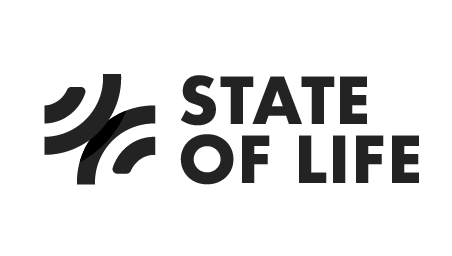The WELLBY World Tour: State of Life's Pioneering Eight-Country Study with Tearfund
by Rose Fawcett, lead analyst at State of Life and lead author of our Tearfund reports.
Between 2022 and 2024, State of Life partnered with Christian development and relief charity Tearfund to assess the impact and social value of their Church and Community Transformation (CCT) processes - an approach that empowers churches to serve the needs of their communities.
Phase one (2023) covered Rwanda, Sierra Leone, Tanzania and Zimbabwe, and the published report was one of three State of Life studies featured in Chapter 8 of the World Happiness Report (2025). Phase two (2025) expanded the research to Bangladesh, Burundi, Malawi and Nigeria.
Explore all resources here: https://learn.tearfund.org/en/resources/impact-reports/cct-local-church-lasting-transformation
The intervention
Tearfund partners with local churches in over 50 of the world’s poorest countries to implement Church and Community Transformation (CCT) processes. The process empowers churches and communities to identify and address their own needs using local resources. Tearfund strengthens this work by training local church leaders, equipping them to adapt and implement CCT in ways that suit their unique contexts, ultimately reducing dependence on external aid.
Assessing the impact on livelihoods and wellbeing
The aim was a large, quantitative study to assess the impact of CCT processes at scale. The design included:
Random sampling of CCT communities within each of the eight countries
Comparison with similar non-CCT communities (which have not yet started a CCT process)
15,000 surveys collected by trained enumerators
Rigorous analysis exploring CCT involvement and wellbeing, controlling for confounding factors
Social value and the WELLBY
State of Life specialises in estimating social value using a subjective wellbeing approach and the WELLBY (Wellbeing-adjusted Life Year), following UK Treasury guidance (read more here). Using this and detailed CCT cost data (including volunteer time and community resources), we calculated social value and the cost-benefit ratio.
Key findings:
Reported life satisfaction (0–10 scale) is 0.857 higher in CCT communities than in non-CCT ones.
CCT is linked to improvements in 26 of 28 measures, including food security, financial security and optimism alongside wellbeing.
Each $1 invested in CCT may generate between $13-$29 in social value.
Leading this major research project has been a career highlight. Three key aspects stand out:
1. Collaborating with a dedicated team:
Tearfund's commitment to rigorous research was exceptional, from the recruitment and training of enumerators to survey translation and accurately capturing costs. Special thanks to Rebecca Middleton and Rachel Paton at Tearfund; their dedication continually contributed to the rigour of the study.
2. Innovating wellbeing use in low-income contexts:
As UK WELLBY values are tied to UK income, we developed a new method for use in developing countries, using median income ratios to adjust values: Read more.
3. Seeing the impact firsthand:
Having lived in Tanzania, with proficient Swahili, it was a joy to co-facilitate enumerator training there. Later, I also visited a CCT church in Hai District. Seeing livelihood projects such as the learning coffee farm and fish pond behind the church, and the shared pig keeping facility, really brought to life how CCT processes are supporting people to improve their livelihoods and realise their potential.




